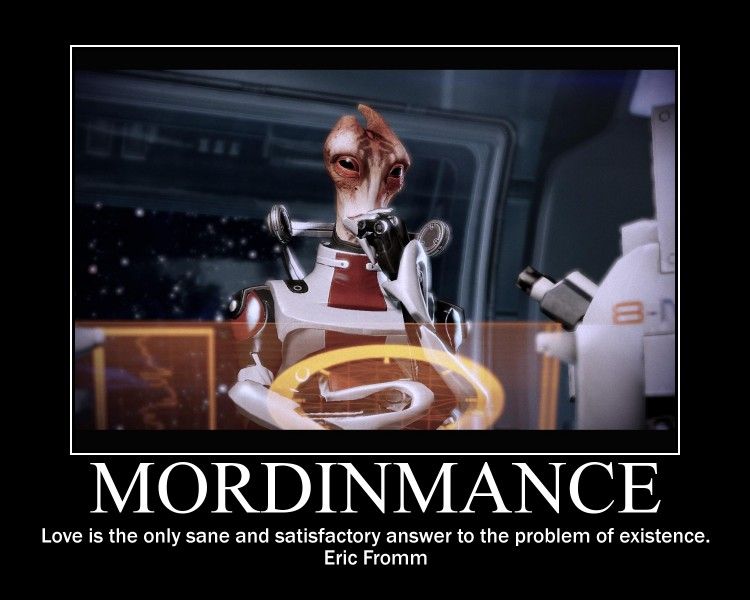 If you’ve read this blog, you’re probably aware of just how fan-boyish we are for Bioware and the MassEffect series of games. Glorious graphics? Check. Interesting game-play that seems to have evolved over the series based on fan feedback? Check. Awesome pop-synth score? Check. Characters with motivations, conflicts, and weaknesses that make you care for their character arcs? Check. Multithreaded “choose your own universe” decision points that echo through the entire trilogy? Check. In short, a triumph of game design. And while I’m amping up for a spectacular conclusion in the final part of the trilogy, what I am really looking forward to is the smaller character moments that speak of a really tight writing team that definitely has a vision for each of the characters.
If you’ve read this blog, you’re probably aware of just how fan-boyish we are for Bioware and the MassEffect series of games. Glorious graphics? Check. Interesting game-play that seems to have evolved over the series based on fan feedback? Check. Awesome pop-synth score? Check. Characters with motivations, conflicts, and weaknesses that make you care for their character arcs? Check. Multithreaded “choose your own universe” decision points that echo through the entire trilogy? Check. In short, a triumph of game design. And while I’m amping up for a spectacular conclusion in the final part of the trilogy, what I am really looking forward to is the smaller character moments that speak of a really tight writing team that definitely has a vision for each of the characters.
I wanted to focus on one of those characters today, Mordin Solus. l suppose it would have been easy for the writing team to have made him the one dimensional “Bones McCoy” type of space-faring physician who occasionally acts as a humanistic counterpoint in discussions about the ethics of certain situations. Fortunately they instead chose to weave a fascinating backstory about a brilliant scientist who is also a warrior monk of sorts – a physician who uses intelligence and logic to explain some of the occasionally ruthless decisions he makes. Perhaps some of the most compelling discussion involves exploring the ethics of modifying the Krogan genophage that essentially resulted in the wide-scale rendering of the belligerent Krogan species largely infertile in the hopes of curtailing their becoming a threat to the galaxy and ultimately being slated for genocide. The ethics here are murky at best, and being a physician myself, I appreciate the inherent complexity of the various viewpoints and how they can change with time.
Despite Dr. Solus’s apparently cool and calculated intelligence, it becomes apparent that the warrior side of him and the physician side of him are at constant odds, as made evident by this quote:
“Have killed many, Shepard. Many methods. Gunfire, knives, drugs, tech attacks, once with farming equipment. But not with medicine.”
This comes to a head when he realizes that his trusted colleague is performing perverse experiments on the Krogan in hopes of justifying a cure for the genophage. In a watershed moment in which he realizes that science and logic can be used to justify both sides of an argument, he opts to make the irrational decision to execute said colleague, requiring an intervention by your character, Commander Shepard.
This certainly struck a chord with me regarding the importance of appreciating the complexities of medical ethics in general.
The six commonly understood pillars of medical ethics (summarized nicely here by the good people of Wikipedia) include:
● Autonomy – the patient has the right to refuse or choose their treatment. (Voluntas aegroti suprema lex.)
● Beneficence – a practitioner should act in the best interest of the patient. (Salus aegroti suprema lex.)
● Non-maleficence – “First, do no harm.” (Primum non nocere.)
● Justice – concerns the distribution of scarce health resources and decisions regarding who gets what treatment (fairness and equality).
● Dignity – the patient (and the person treating the patient) have the right to be treated with dignity.
● Truthfulness and honesty – the concept of informed consent.
Adding to the complexity of dealing with these concepts is the understanding that viewpoints can also change with time – something that I (and I only) might refer to as the “Solus Paradox.” This is what adds true grist to the practice of medicine, in my view. I’ve had patients who were at first staunchly opposed to the idea of life-support and resuscitation change their minds at the last moment. Similarly, I’ve had patients who explored all avenues of care in the treatment of conditions with poor prognoses calmly and confidently determine that “enough is enough.” Anticipating that patients can and will change their minds when it comes to difficult decisions equips you to be a better physician.
Thanks, Dr. Solus!

